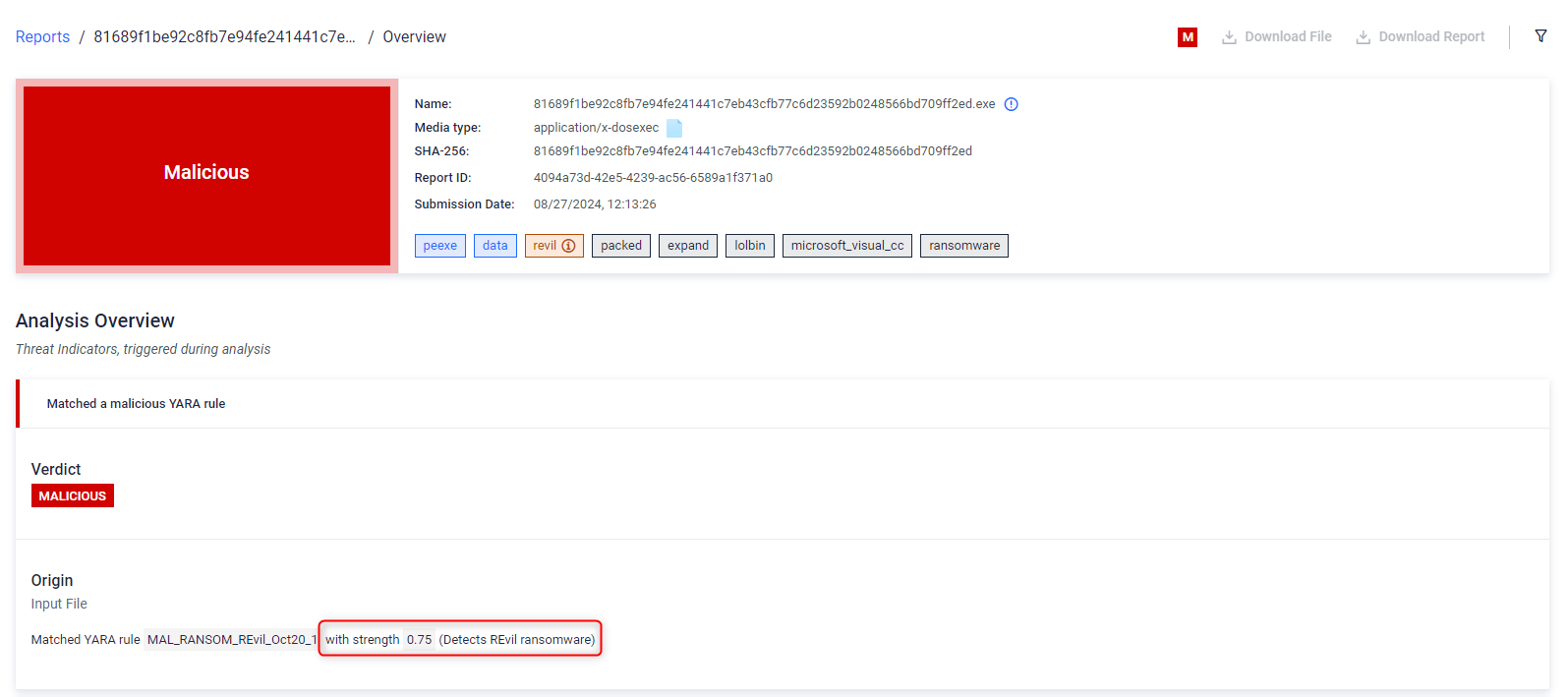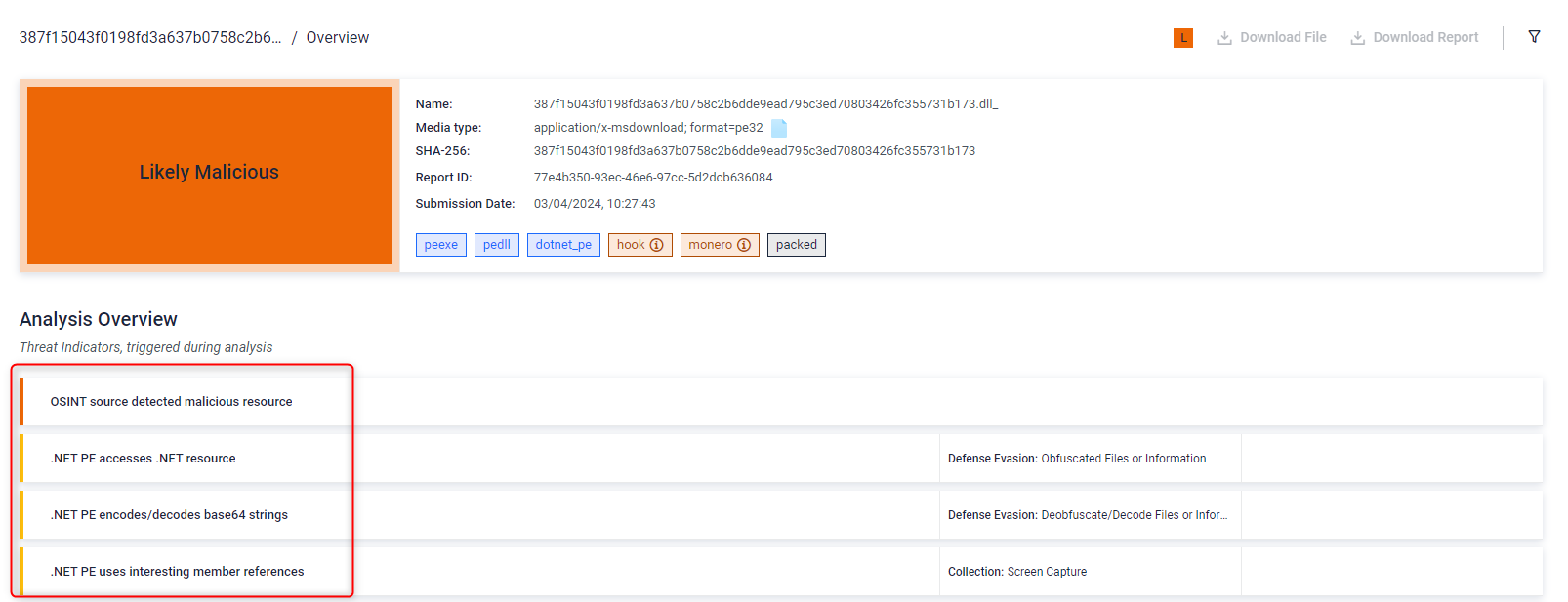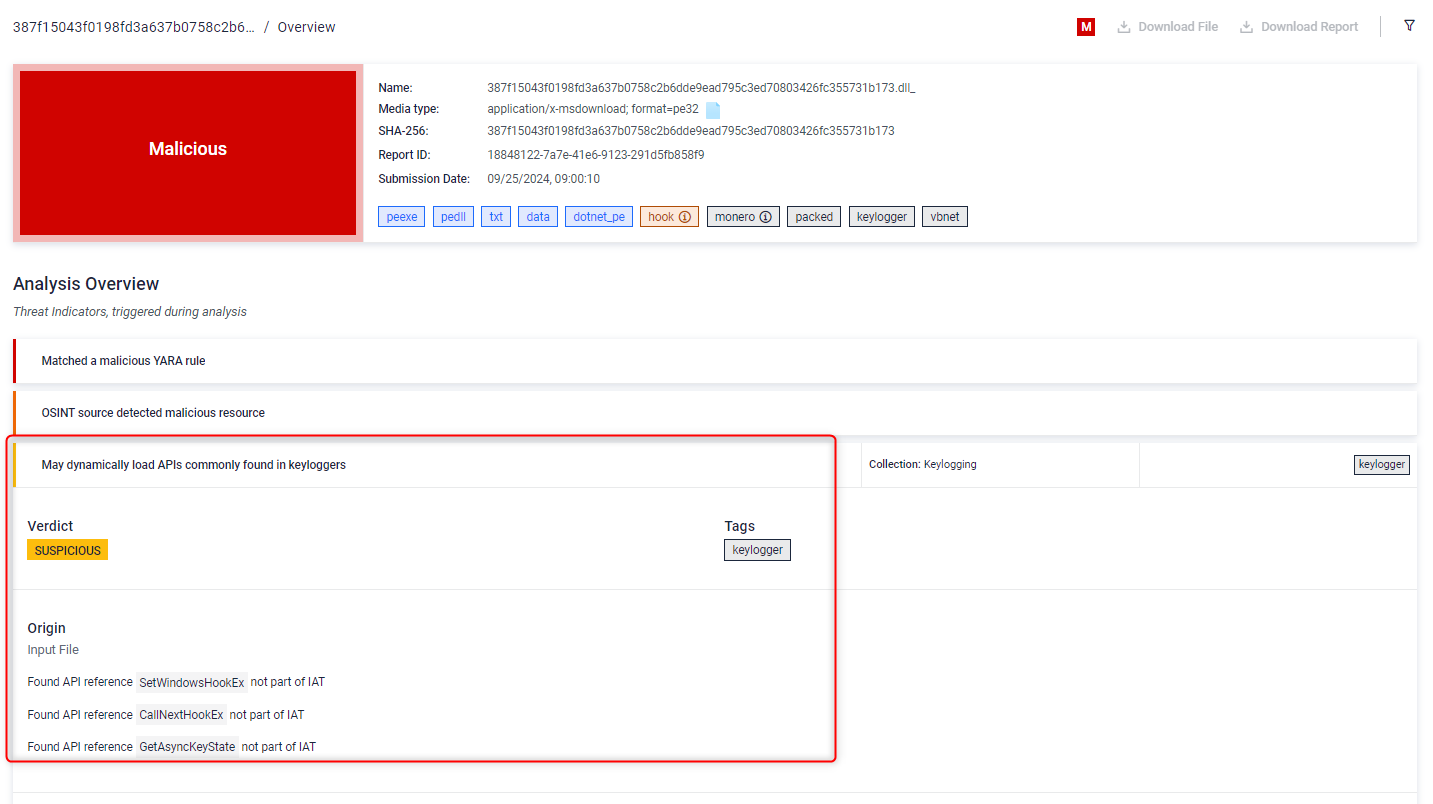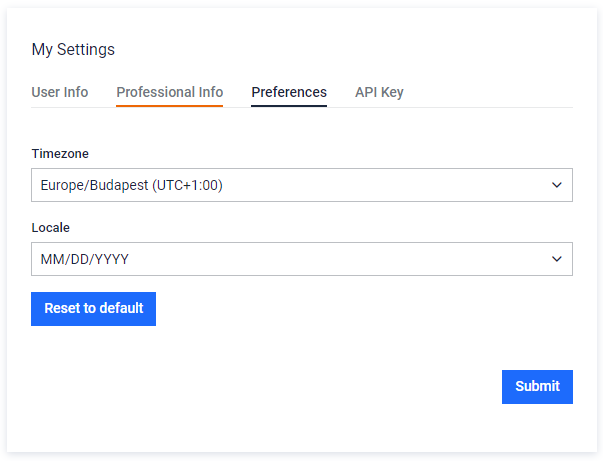Date: 3 October, 2024
What's New
- Ransomware Detection Enhancement: Added severity Yara rule matches related to ransomware, helping to prioritize and respond to ransomware threats more effectively.

0.75 severity score for the ransomware
- LNK File Threat Indicators: Strengthened detection for LNK icon smuggling and LNK-MOTW (Mark of the Web) bypass attacks, both common techniques in modern malware.
- OT Malware Detection: Introduced a YARA ruleset specifically for OT (Operational Technology) malware, expanding protection to critical infrastructure systems.
- Improved Resource Section Analysis: Enhanced extraction and detection of overlays in the PE resource section, providing deeper insights into hidden malicious content.

- Downloadable Data: You can now download extracted resource section data from PE files for offline analysis and further investigation.
- .NET API Call Detection: Added detection of unmanaged .NET API references, improving analysis of .NET-based malware.

Before .NET API Call Detection implementation

After .NET API Call Detection implementation
- JPHP Support: Enhanced malware detection with the ability to parse and decompile JPHP files, expanding the range of supported file types and languages. Supported packers for unpacking
- MSC File Support: Added the ability to identify and parse Microsoft Management Console (MSC) files, further broadening threat detection capabilities.
- Symantec Quarantine Repair: Implemented a repair function for files restored from Symantec quarantine, ensuring files can be analysed post-restoration.
- Custom Time zone & Locale: Users can now configure their preferred time zone and locale settings for a more personalized experience. How do I set my time zone and locale?

Time Zone and Locale in the "My Settings" menu
- Admin User Failsafe: Ensures that there is always at least one admin user to maintain platform security and control.
Improvements
- YARA Rule Updates: Reviewed and vetted third-party YARA rules. By default, YARA rules are loaded with priority from the OPSWAT repository.
- Improved IOC Extraction: Enhanced the extraction of indicators of compromise (IOC) from emulation for a more comprehensive report.
- Better XOR Decryption: Extended XOR decryption capabilities, improving analysis of encrypted malware.
- Python Script Detection: Improved detection of malicious Python scripts, a growing vector for attacks.
- API Enhancements: Made API endpoints more robust, ensuring seamless integration and communication with other systems.
- Simplified Configuration: Streamlined the engine configuration with renamed property files, making it easier for admins to manage settings.
- Enhanced Emulation: Increased emulation success rates, particularly through better recognition of file content types eligible for emulation.
- Malicious Document Detection: Improved the detection of malicious documents, adding new indicators and reducing the risk of document-based attacks.
- Reduced False Positives: Lowered false positive rates for heuristically detected or non-clickable IP addresses and URLs, improving the accuracy of threat analysis.
- Admin Panel Improvements: Enhanced the grouping of settings in the Admin panel for better organization and ease of use.
- Disassembly Section Update: Now displays RVA in hexadecimal format in the disassembly section, providing more detailed information for advanced analysis.
- VBA Macro Display: Displays extracted VBA macros, offering greater visibility into potentially malicious code hidden in documents.
- Context-Aware Threat Indicators: Improved threat indicators by factoring in the context of the analysis, leading to more accurate threat assessments.
Bug Fixes
- Broker API Authorization Fix : Resolved an issue with secret handling in the broker API to improve security.
- Cronjob Overlap Fix: Fixed an issue with the overlapping execution of the Sandbox auto-restart cronjob which prevented automatic restarts under heavy load.
- Certificate Extraction Fix: Resolved a long scan execution issue caused by certificate extraction in offline environments for signed PE files.
- Syslog Protocol Standardization: Standardized the usage of the CEF Syslog protocol for more consistent logging and event tracking.
- Local APT Repository Fix: Fixed permission issues with the local APT repository on hardened operating systems, ensuring smoother package management for offline installations.

